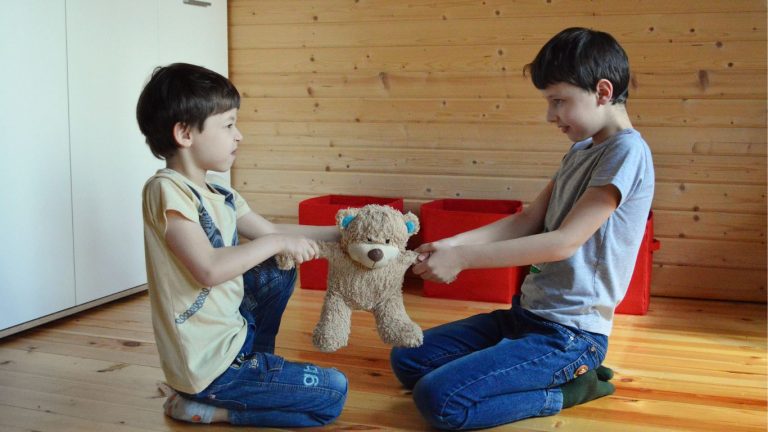Almost every day parents write to FamilyLab and say: “My children never listen to what I say!” What they sometimes mean is that the children do not obey them or do not follow their instructions. Perhaps they might also be saying that they feel they are not being heard or listened to. Experience tells us that the reason for this always is the same: What parents say is hardly worth listening to.
Don’t feel insulted! There is nothing wrong with what we actually say. Most of the time it is both reasonable and worthwhile. The problems are something different.
One problem is: Contact. Many of us assume that we connect with our children just because they are within earshot. This, of course, is not always the case. Their minds are full of things and their attention might be somewhere completely different or they are deeply focused on what they are doing right there and then. Children learn more in a day than most university students do in a week – yet we expect to get their full attention whenever we want it. It might be a good idea to knock on the door before delivering the message. A friendly: “Hello, Peter… Hello?” Get eye contact and notice when he is present. As a rule of thumb, this will take between four and seven seconds. When they are ready we might say: “Hi, I would like to tell you something. Are you ready to listen to me?” More often than not they will say: “Yes!” If they are not ready, it is a good idea to show patience and say: “Alright, I’ll wait.”
There are parents who do not agree with this. It is definitely confronting and might challenge a perceived belief that we as parents have some kind of ownership over our children’s minds and therefore have a given right to instant access. Nevertheless, we do not expect to have that kind of access to other adults’ minds. It is worthwhile treating children with the same dignity. It enables them to model exemplary behavior which will, without doubt, benefit everyone in the long run.
The other problem is: Voice. Ironically, this problem occurs when we use “child friendly language” and overstate the very sweet tone. Grandparents used to be the only ones to increase their pitch a few notches but now it has become widespread. It is as if we speak two languages; one for adults and one for children. All we need to do is use is a warm, trustworthy and respectful voice. Friendliness simply requires that our voice and body language communicate: “I have positive expectations of our relationship and co-operation, and I shall make sure that there is room for both of us.
“I would like you to play with something, which isn’t so noisy.”
“I don’t want you to bite me, but I would like to know what made you angry?”
“I would like you to go to bed soon.”
Listen, so they want to speak
Even when we make contact and use the right tone of voice our children might not do what we want them to. That is when negotiations begin. Through this genuine style of conversation they will learn how to challenge us and discuss things with us – and any other adults for that matter.
But is it necessary to negotiate everything? No, not at all. As parents we hold the power – the power to take the child seriously as well as the power to make the right decisions – even though the child might not be able to recognise it. Not surprisingly, our children might become frustrated but that is all right. We need to keep the negotiation brief, make up our minds and carry the decisions through. This will cause frustration as well as comfort. There is nothing wrong with that. We will fail our leadership responsibilities when we become too flexible and incapable of making a decision. We will let our children down if we only act when there is consensus or alternatively criticise them for being dissatisfied and ungrateful with what happens.
Some battles are worth fighting, others are not. It might be the case that the desires and wishes of both are equally important and valid. Then parenting becomes really difficult. Fortunately, help is near because there is nothing our children would rather do than make us happy and from this they learn that they are valued. Ask for their help: “I don’t know what to do. I understand that you would like a day off from child care but I have to go to work. Can you help me?”
This is not the same as leaving the decision up to the child. It is, however, a way of including them in the decision making process. They might not come up with a solution but one thing is certain, the conflict will be scaled down simply because they know they are listened to and taken seriously.
A healthy family is one where everyone has a right to express their wishes, their dreams and their needs – and is free to do so. Slowly but surely they will learn that this right does not necessarily mean they get everything they want.
As parents we must not fear conflicts or frustrations. Instead we ought to worry about apathy and silence.





